The Dumfries street that has flooded more than 200 times
The Whitesands in Dumfries is one of the most regularly flooded urban areas in Scotland.
There have been at least 205 incidents since 1827 - about one a year - according to research by the BBC Scotland News website.
The worst flooding since the current measuring system began was last December as the River Nith overflowed.
Now councillors are due to decide whether flood protection plans should go ahead amid spiralling costs.
As the winter approaches - and with it more rain and storms - what is it like living and working in an area where flooding is a constant threat?

Colin James, has lived on the street for the past five years and has seen the situation get worse.
"It's pretty bad here, we've been flooded three times," he said.
"The first two were about ankle-deep and then the one in the past year was obviously the big one, up to about waist-deep on the ground floor, so it was pretty difficult to deal with.
"Some of the people I've been living with here have moved out after the floods, just because it's a lot to deal with.
"We've lost a number of appliances, washing machines, dishwashers, those kind of white goods, and it just kind of upends your life."
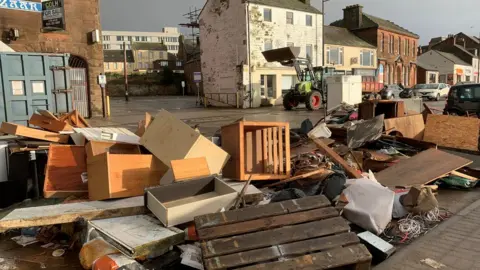
He said it appeared to be getting worse every time.
"It really seems unique in Scotland that we seem to be doing so little to deal with the problem," he said.

How bad is it?

A BBC Freedom of Information request to the Scottish Environment Protection Agency (Sepa) found its database held 205 records of flooding on the Whitesands between 1827 and 2020.
The main source of the issue - 80% of cases - has been the River Nith.
Sepa stressed there may have been more incidents which it had not recorded.
"The Whitesands area of Dumfries has a long history of flooding and the car park area in particular floods frequently," it said.
"Sepa has issued a flood warning for Whitesands on 30 occasions over the past six years."
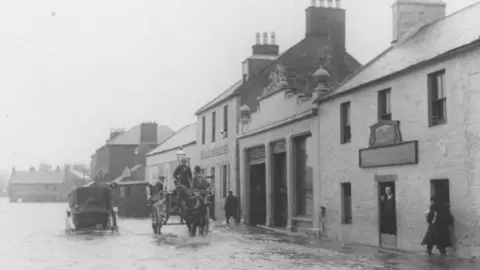 Heritage Service - Dumfries and Galloway Council
Heritage Service - Dumfries and Galloway CouncilIt also operates a gauging station in the area which measures the level of flooding in metres.
The worst incident on record was in December 1982 at 5.15m but that was surpassed on 30 December last year at 5.31m.
Other notable flooding events have been linked to Storm Desmond and Storm Frank (December 2015) and Storm Dennis (February 2020).
A "double peak snow-melt event" in 2018 also resulted in a flood for more than 30 continuous hours which was the longest recorded in the area.

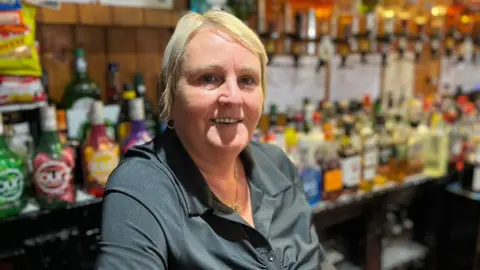
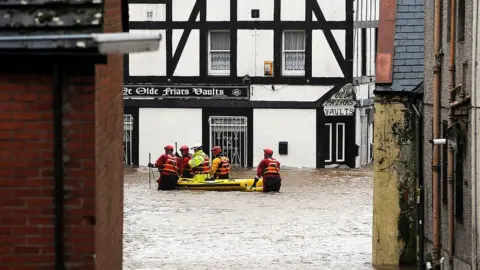 Getty Images
Getty ImagesElizabeth Thomson is licensee of Ye Olde Friars Vaults, on Friars Vennel, just off the Whitesands.
"Last year was the worst, and I've been here about 28 years," she said.
"It was probably about four-and-a-half feet (1.4m) everywhere, higher than the bar.
"We usually put things on the bar, but we just saw things we own literally wash away."
She said it was "devastating" for everyone in the area.
"It is a concern that it would be getting worse with climate change, we can only hope it doesn't get any worse, but obviously it is," she added.
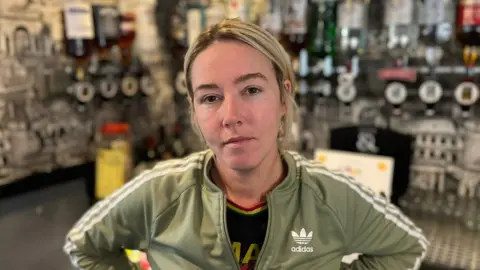
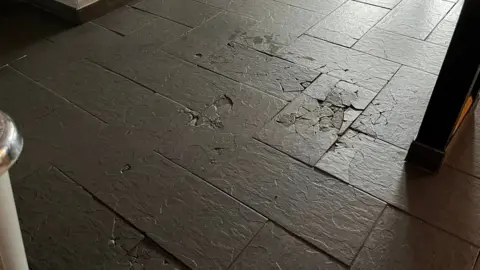
Kimberley Murray runs the The World's End pub which was also badly damaged last year.
"I think when you are sitting here for two days in wellies trying to clean it up as best as you can, so you can get open quickly again, is very heartbreaking," she said.
"It does concern me but I knew what I was getting into. Before I took this place I knew it flooded so we have just got to kind of get on with it.
"I do hope that they do something in the future - whether that be dredge it out as a short-term kind of thing - but something needs to be done about it."
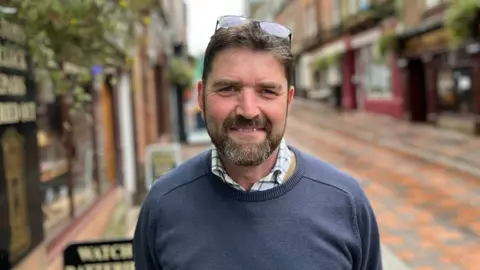
Gwyn Parry, co-owner of Parry Farm Produce in Friars Vennel, said the last incident in December was the worst he had seen.
"The last flood, the last big event we had here, was a once-in-15-year event," he said.
"This place floods all the time, you're never going to stop it unless you have something drastic, and people are quite used to it.
"But the last time was a big flood, it came into our shop for the first time."
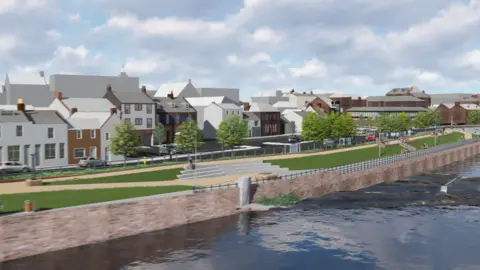 Dumfries and Galloway Council
Dumfries and Galloway CouncilA council-backed protection scheme was approved in 2020 - in the face of some opposition due to cost, visual impact and loss of parking - but Covid delayed its implementation.
In the meantime, the price has risen from £25m to £37m and the local authority's administration has changed.
A full meeting of the council will now decide whether to continue the project, drop it, carry out a review or examine other options.
In the meantime, traders and residents say they will just have to get on with whatever this winter may bring.
